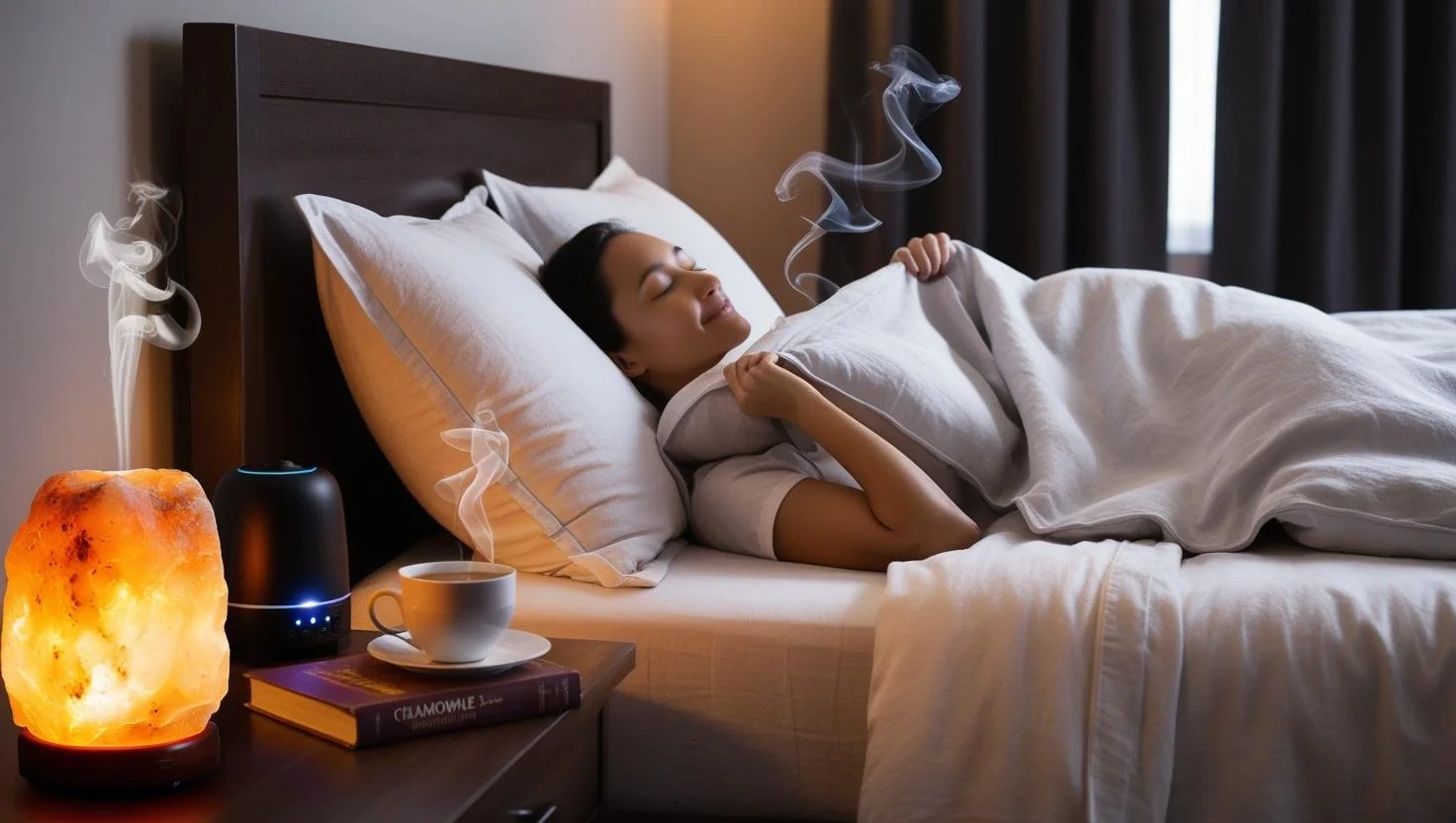Optimize Your Sleep Cycle to Wake Up Refreshed
Want to feel clear-headed at sunrise? Optimize Your Sleep Cycle by aligning your bedtime and wake-up with 90‑minute sleep cycles, minimizing disruptors (blue light, caffeine, alcohol), and getting morning light. Do this, and you’ll wake closer to light sleep—aka your refreshed, ready-to-roll moment.
Key Takeaways on Optimizing Your Sleep Cycle
- Plan sleep in 90‑minute blocks (4.5, 6, 7.5, or 9 hours) to optimize your sleep cycle and wake during lighter stages.
- Keep a consistent sleep/wake schedule—even on weekends—for steadier energy.
- Limit caffeine 6+ hours before bed; stop alcohol ~3 hours before lights out.
- Protect melatonin: use night mode/blue‑light filters and dim lights 1–2 hours pre‑bed.
- Morning routine: light exposure within 30 minutes, hydrate, and move gently.
- Tweak bedtime by ±15 minutes if you still feel groggy to better sync your rhythm.
What Is a Sleep Cycle? (And Why It Matters)
Summary: Your sleep runs in ~90‑minute cycles across light, deep, and REM stages; waking near the end of a cycle makes mornings feel easier.
A sleep cycle is like your body’s overnight playlist. Each cycle lasts about 90 minutes and includes four unique stages:
- Stage 1 – Light Sleep: That gentle drift into rest where your muscles relax and your heartbeat slows.
- Stage 2 – Deeper Light Sleep: Your temperature drops and your body preps for deeper recovery.
- Stage 3 – Deep Sleep (Slow-Wave Sleep): This is the magic zone for healing, memory building, and immune support.
- Stage 4 – REM Sleep: The dream zone. Your brain gets busy while your body rests, helping with emotional balance and creativity.
We cycle through these stages 4 to 6 times a night. When those cycles are disrupted, that’s when you get groggy mornings and daytime yawns.
Related read: The Science of Sleep: 10 Proven Ways to Fall Asleep Faster & Wake Up Energized

Why Your Energy Depends on Sleep Timing
Summary: Timing matters because waking during deep sleep or REM leaves you foggy; waking near the end of a cycle leaves you clear and energized.
Here’s what happens depending on when you wake up during a sleep cycle:
- Wake up during Deep Sleep: You feel foggy and slow.
- Wake up during REM: Disoriented, moody, and off-balance.
- Wake up at the End of a Cycle: Ahh… this is your refreshed, ready-to-roll moment.
To Optimize Your Sleep Cycle, try to wake up at the end of a 90-minute cycle. That’s when your brain is naturally closer to wakefulness—and it makes mornings feel a lot better.
Pro tip: Sleep Like a Pro: 10 Proven Hacks for the Deepest Sleep of Your Life

How to Time Your Sleep for the Best Wake-Up
Summary: Count backward from your wake-up in 90‑minute blocks; if you still feel groggy, nudge bedtime by 15 minutes to better sync your cycle.
Here’s a simple sleep math trick: A full sleep cycle is about 90 minutes. So aim to get 4.5, 6, 7.5, or 9 hours of sleep. Plan your bedtime based on when you need to wake up.
Need to get up by 6:30 AM?
- 6 cycles = Go to bed by 9:00 PM
- 5 cycles = Go to bed by 10:30 PM
- 4 cycles = Go to bed by 12:00 AM
If mornings still feel rough, try adjusting your bedtime by 15 minutes either way to better optimize your sleep cycle and sync with your body’s rhythm.
More cozy insights: 10 Sleep Hacks That Actually Work – #7 Will Surprise You!

What Interrupts Your Sleep Cycles
Summary: Common disruptors—caffeine, blue light, irregular schedules, alcohol, and stress—fragment deep sleep; set simple cutoffs and wind‑down cues.
You may be doing all the right things and still wake up exhausted. Here are a few common cycle disruptors and quick cozy fixes:
- Caffeine: Cut it off at least six hours before bed. That afternoon latte can sneak up on you.
- Blue light: Screen time before bed tricks your brain into thinking it’s daytime. Use night mode or blue-light glasses.
- Inconsistent bedtimes: Try to go to bed and wake up at the same time, even on weekends.
- Alcohol: It may make you sleepy but actually fragments deep sleep. Stop drinking at least three hours before lights out.
- Stress: Try deep breathing, gentle yoga, or jotting down your thoughts to calm your mind before bed.
Read more: Say Goodbye to Insomnia: 10 Sleep Secrets for Instant Deep Sleep

Make Mornings Easier with the 90-Minute Rule
Summary: Pair 90‑minute sleep planning with a gentle wake strategy and sunlight to lock in alertness.
- Plan your sleep in 90-minute cycles: 6 or 7.5 hours works well for most people.
- Try a smart alarm that gently wakes you during light sleep.
- Get sunlight within 30 minutes of waking—step outside or sit by a window.
- Hydrate with a glass of water.
- Stretch or move your body to kickstart circulation.
Bonus tip: How Morning Sunlight Exposure Resets Your Circadian Rhythm
Final Thoughts: Cozy Up and Optimize Your Sleep Cycle
Sleep isn’t just about quantity—it’s about timing and quality. When you Optimize Your Sleep Cycle and align with your body’s natural rhythm, you unlock deeper rest and brighter mornings.
So tonight, skip the doom-scrolling. Set your sleep for a 90-minute cycle, light a lavender candle, and cozy up under your favorite blanket. Let your body do what it was designed to do—restore, reset, and rise strong.
Ever wake up feeling like a zombie, even after a full night’s sleep? Or maybe some mornings you spring out of bed, and others feel like you’re wading through molasses. Sound familiar? The real trick to waking up refreshed may not be the number of hours you’re sleeping—it’s how well you’re syncing with your body’s natural rhythm.
✧ For more cozy bedtime wisdom, visit our Cozy Bed Quarters blog.
FAQ
- What is the best sleep cycle length to aim for?
- About 90 minutes. Plan for 4.5, 6, 7.5, or 9 hours so you wake closer to light sleep and feel more refreshed.
- Should I use a smart alarm to optimize my sleep cycle?
- It can help by waking you during lighter sleep, but consistent bed/wake times and morning light matter more long term.
- How do I quickly fix a disrupted sleep cycle?
- Go to bed and wake at the same time for a week, get morning sunlight, avoid caffeine after mid‑afternoon, and shift bedtime by ±15 minutes if you still feel groggy.
- Is 6 hours enough if I time it right?
- Some people feel fine at 6 hours (four cycles), but most thrive at 7.5 hours. Track your energy and adjust.
&
Related reading from Cozy Bed Quarters
Other reading we found popular
- Sleep Foundation — How Morning Sunlight Exposure Resets Your Circadian Rhythm
- The Spruce — Bedroom Lighting Ideas
- Architectural Digest — Best Eco-Friendly Products























